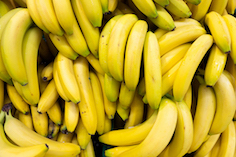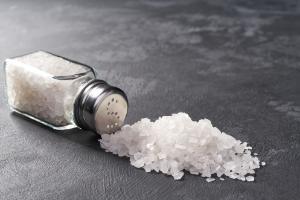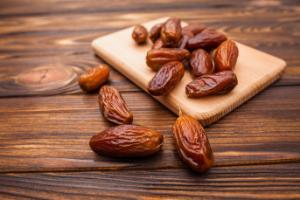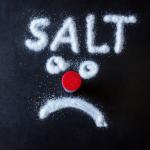Health
Enjoying a Healthy Ramadan with Less Salt and Sugar
Ramadan is a time to focus on humility, prayers, community, and good deeds. Whilst the foods eaten during this period may vary by culture and tradition, Ramadan is an excellent time to start becoming more conscious of your salt and sugar intake and think about impact of your food on your health. Our Nutrition Officer, Nourhan Barakat, shares her insight and tips to help make the most of your nutrition and build healthy habits by being mindful of salt and sugar. Read the full blog.
Potassium - what is it and why do we need it?
You might have heard the myth that eating too many bananas can give you a potassium overload. But in reality, you’d need hundreds of bananas for this to happen! So what is potassium and how much do we actually need? Potassium is an essential nutrient for our bodies to function, particularly for the functioning of cells in muscles and nerves. The balance of potassium in the body is very specific. So when we eat potassium in the diet...read more
Spreading happiness and good health this Diwali 
This weekend Hindus, Jains and Sikhs will celebrate the biggest festival of the year; the festival of lights, also known as Diwali. As a Hindu myself, this festival is one I have been looking forward to the most, especially after the eventful year we have had. I am wishful that the lights, fireworks and diyas (traditional oil clay lamps used in celebrations) will bring happiness and light amongst the current chaos...read more here
Salt and Health 
Salt is made up of Sodium Chloride. Salt is the biggest source of sodium in our diets, and it is the sodium that can affect our health. There are different types of salt; Himalayan, Rock and Sea for example, however they all contain similar amounts of sodium chloride and all affect our health in the same way.
Our bodies need sodium to help regulate fluid in the body, but we are currently eating about 8 grams a day (2g more than the current government daily limit of 6g – about 1 teaspoon), so we have a little bit of reducing to do! ... read more here
The Importance of Reducing Salt and Sugar During Ramadan 
In the UK, Muslims will be abstaining from food and drink from sunrise (approx. 4am) until sunset (approx. 8.15pm). During the month, only two main meals will be consumed by the majority of Muslims, the iftar (evening meal to break the fast) and suhur (the pre-dawn meal before starting the fast). During those meals, it is important to consider the amount of salt and sugar eaten, because ... read more here
Latest survey reveals that our salt intake has not come down in years, as new evidence reinforces the need for salt reduction
In March, the long-awaited survey of salt intake in England was published – which came with disappointing results. Not only is our average salt intake still well above the maximum recommended intakes (by 40%), but it has not declined for the past ten years. This is disastrous news for public health. Why is salt such a big deal and what action should be taken in achieving salt reduction?... read more here


